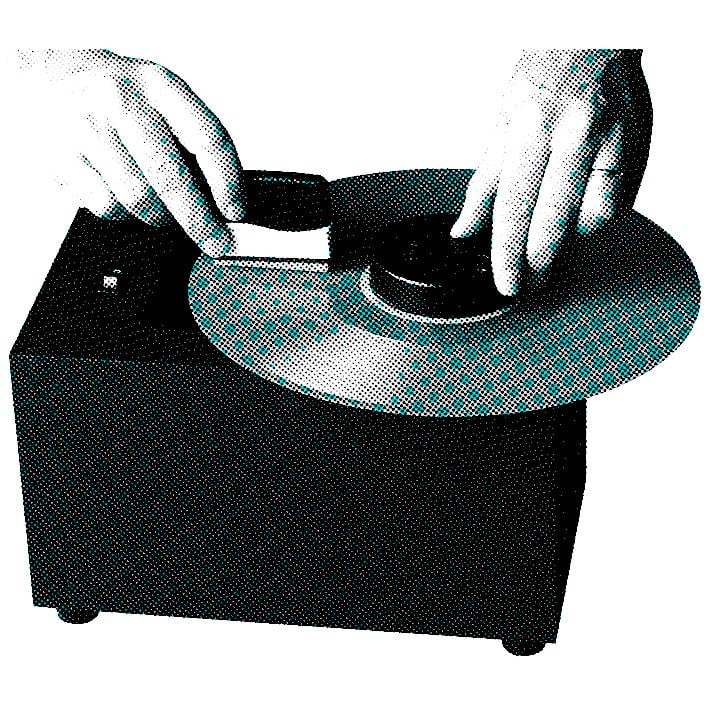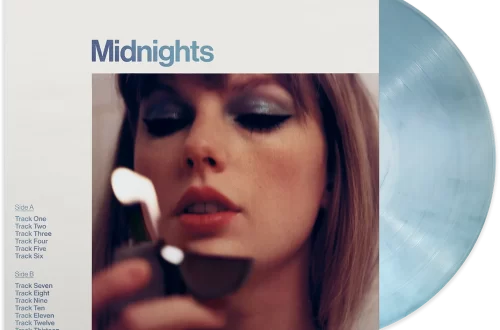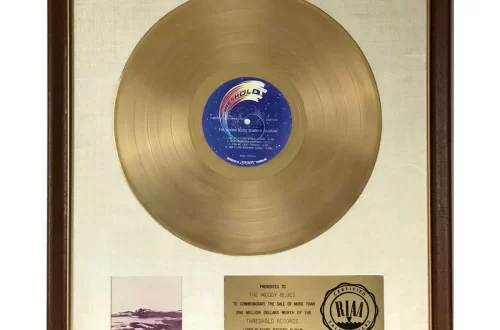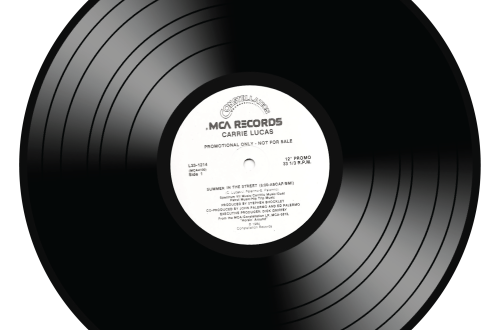Introduction to Vinyl Record Maintenance
How to clean vinyl records?Vinyl records demand careful handling to stay in good shape. Over time, dust, oils, and scratches can harm them. These issues not just spoil the music’s purity but also risk damaging your record player’s needle. Thus, proper maintenance is key for any collector. In this section, we will explore crucial steps and tools needed for keeping your records clean and well-preserved. Get ready to dive into the world of record upkeep with efficiency and care. Stay tuned for insights on manual cleaning, the aid of machines, innovative solutions, and storage tips. Our guide will help you enjoy crisp, clear music from your vinyl records for years to come.
Essential Tools for Cleaning Vinyl Records
To effectively clean vinyl records, you need the right tools. Using appropriate equipment helps prevent damage while ensuring a thorough clean. Here are the essential tools for anyone looking to keep their vinyl records in top condition:
- Microfiber Cleaning Cloths: These cloths are soft and won’t scratch the vinyl surface. Use them to gently wipe away dust and grime.
- Record Brushes: Specifically designed brushes with soft bristles can remove fine particles without harming the grooves of the record.
- Cleaning Solutions: Purchase solutions made for vinyl records or consider natural alternatives like the Simple Green All-Purpose Cleaner, when diluted properly.
- Stylus Brush: Keep your record player’s needle clean with a stylus brush to avoid sound distortion from dust particles.
- Velvet Brush: Comes in kits like the Vinyl Buddy, great for deep cleaning and picking up stubborn debris.
- Record Cleaning Kit: A comprehensive kit, such as Vinyl Styl Ultimate Care Kit, includes everything you need to maintain your records’ cleanliness.
Remember to use these tools carefully and follow the manufacturer’s instructions. Regular cleaning with the right tools prolongs the life of your records and ensures the best audio quality.
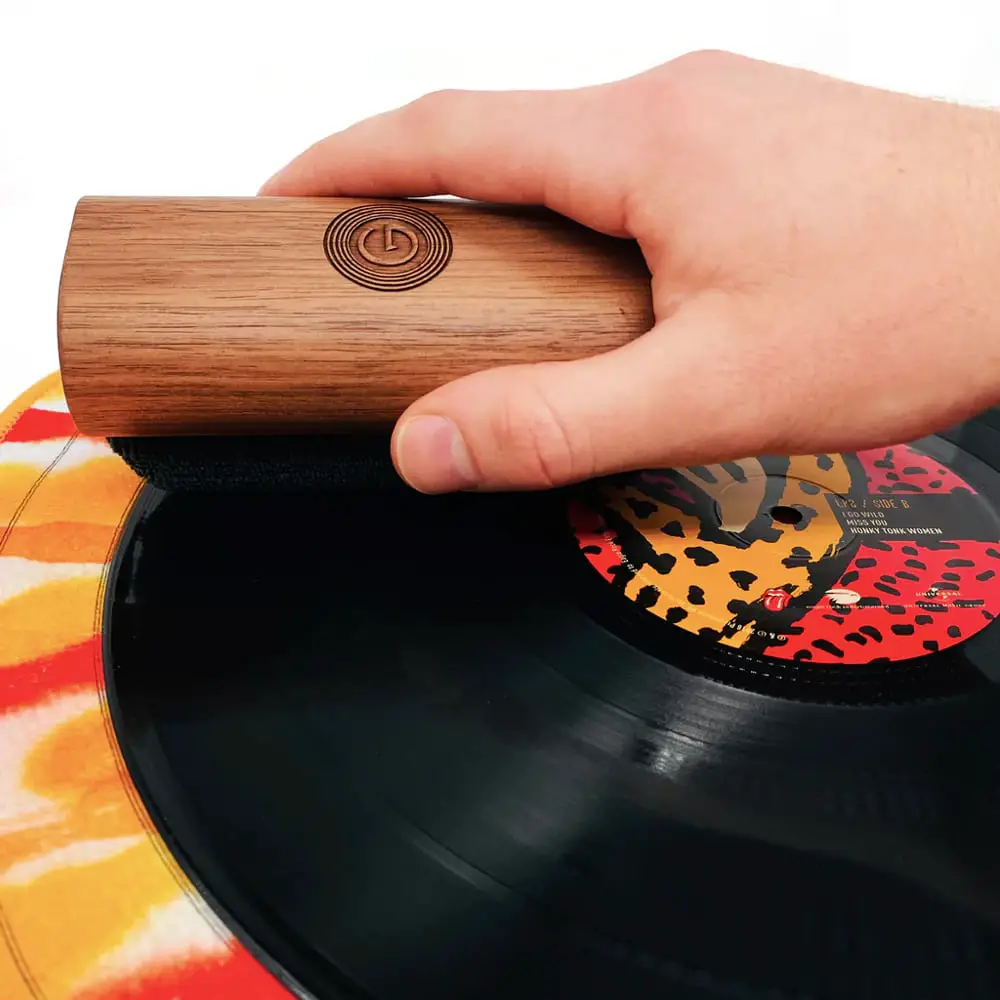
Step-by-Step Guide for Manual Record Cleaning
To maintain the quality of your vinyl records, a regular cleaning routine is essential. Here is a straightforward, step-by-step approach of How to clean vinyl records:
- Prepare Your Workspace: Start by setting up a clean, flat surface in a well-lit area. Ensure that the space is free from dust and clutter.
- Remove Surface Dust: Position your record on a clean platter or mat. Use a carbon fiber or soft-bristled brush and gently sweep over the vinyl, starting from the center and moving outward in a straight line.
- Apply Cleaning Solution: Hold the record by its edges and apply a few sprays of a vinyl record cleaning solution, avoiding the label. You can also use a diluted solution of Simple Green for a natural alternative, as mentioned in the retrieval results.
- Wipe in Circular Motion: Take a microfiber cleaning cloth and lightly clean the record following the grooves in a circular motion. Be gentle to prevent any potential damage.
- Rinse if Necessary: If you used a cleaning solution, rinse the record with distilled water to remove any residual cleaner. Avoid tap water because it can leave mineral deposits.
- Dry the Record: Use a separate, dry microfiber cloth to carefully dry your vinyl record. Never play a wet record, as it can harm both the vinyl and the turntable’s stylus.
- Inspect the Needle: Finally, check your record player’s needle, as suggested in the retrieval results. Use a stylus brush to ensure no dust is left that could affect sound quality.
By following these steps for how to clean vinyl records, your collection will not only look great but sound its best too. Remember, consistency is key in vinyl record care, and a gentle approach will help preserve your records for longer enjoyment.
The Role of Record Cleaning Machines
Record cleaning machines can be a vinyl collector’s best friend. These devices offer a more thorough, automated cleaning process, taking much of the work out of your hands. Depending on the model, they can clean both sides of a record at once, saving time and effort.
Automatic Record Cleaners
Automatic cleaners use motors to spin and clean records. Some use ultrasound or fluids to dislodge dirt, others vacuum away debris. They are quick and effective, but usually cost more.
Manual Record Cleaners
Manual record washers need you to turn the records and apply cleaning fluid. They’re less expensive and can be just as effective, though they take more time and effort to use.
Vinyl Vacuum Cleaners
Vinyl vacuum cleaners use suction to remove dust and particles. These machines may be manual or automatic and vary in price, with some budget-friendly options available.
Using these machines regularly helps prevent build-up that can degrade sound quality. After cleaning, remember to check your record player’s needle for dirt or dust. Proper use of record cleaning machines can significantly extend your vinyl’s lifespan and enhance your listening experience.
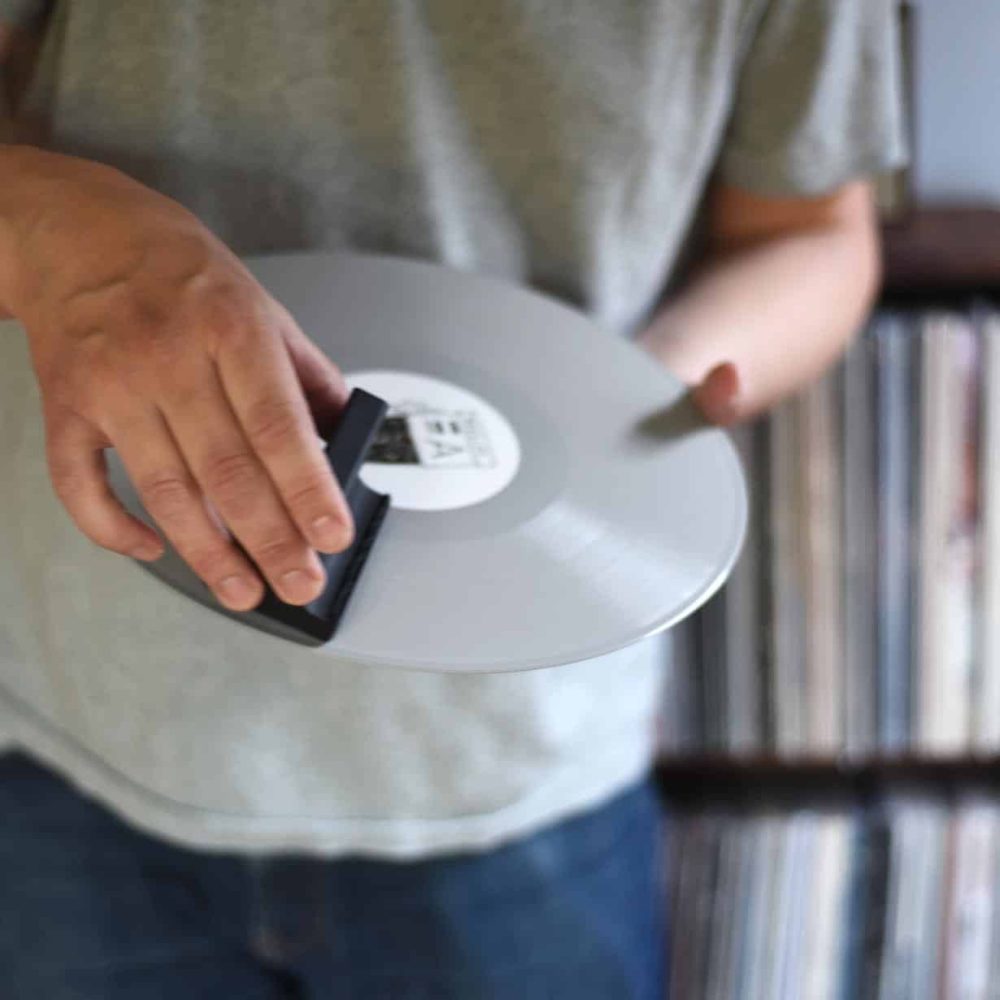
Innovative Cleaning Solutions
Vinyl record enthusiasts often look for effective and innovative cleaning solutions. These not only enhance the cleaning process but also help preserve the quality of the records. Here are some innovative solutions of how to clean vinyl records:
- Specialized Cleaning Fluids: Opt for fluids specifically designed for vinyl records. They safely remove dust, oils, and residues without harming the vinyl.
- Ultrasonic Cleaners: These devices clean records using high-frequency sound waves. They are highly effective at removing deeply embedded dirt without physical contact.
- Simple Green Solution: As noted in the retrieval results, a diluted Simple Green solution can be an eco-friendly option. Mix with water at a 1:30 ratio for a safe and natural clean.
- DIY Cleaning Solutions: You can create a homemade cleaner with distilled water and a few drops of isopropyl alcohol. Remember to use it sparingly to avoid damage.
- Vacuum Record Cleaning: Consider using a record vacuum cleaner. This machine carefully sucks up dirt and dust from the record’s surface.
Each method offers unique benefits. Choose the one that best suits your needs and budget. Remember to always handle your records with care to minimize the risk of damage during cleaning.
The Importance of Proper Storage
Proper storage for vinyl records is crucial. It protects them from dust, scratches, and warping. Keeping records clean is good, but without the right storage, they can get dirty again quickly. Here’s how to store your vinyl records correctly:
- Upright Position: Always store vinyl records standing up. It prevents warping and pressure damage. Avoid storing them flat on top of each other.
- Stable Environment: Choose a cool, dry place for storage. Heat, humidity, and light can harm records. Avoid damp basements or hot attics.
- Inner Sleeves: Use anti-static inner sleeves. They protect records from dust and static. Replace paper sleeves that can scratch.
- Outer Sleeves: Consider plastic outer sleeves. They shield the record cover and inner sleeve from dust.
- Shelving or Crates: Keep records on shelves or in crates. Make sure they are secure and won’t tip over. The surface should be clean.
Proper storage extends a record’s life and keeps the sound quality high. It’s the last step in caring for your vinyl collection.
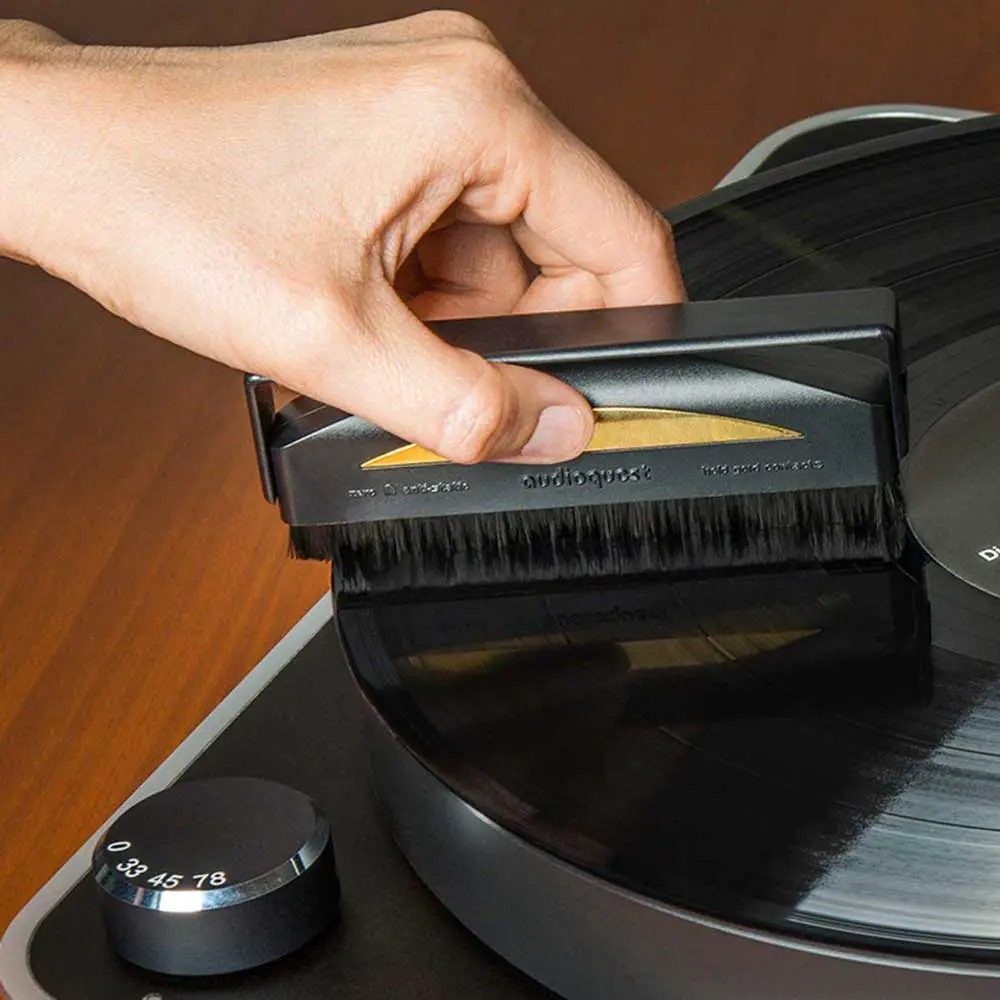
Common Mistakes to Avoid When Cleaning Records
Maintaining vinyl records requires not only the right tools and techniques but also knowing what not to do. Here are some common missteps you should avoid to ensure your records stay in top-notch condition.
- Using Incorrect Fluids: Never utilize household cleaners or alcohol on records. They can strip away protective layers and damage the vinyl.
- Excessive Force While Cleaning: When wiping your records, always be gentle. Applying too much pressure can scratch the surfaces and grooves.
- Ignoring the Label: Spraying cleaning solution directly on the label can cause it to peel or discolor. Always protect the label area.
- Drying with Heat: Steer away from hairdryers or heat sources for drying records. These can warp the vinyl. Air-dry them or use a soft, dry cloth.
- Playing Wet Records: Do not play records while they’re still wet. It could lead to damage to both the vinyl and the needle.
- Stacking Records: Stacked records can warp and get damaged. Store them upright to prevent warping and unnecessary pressure.
- Using Tap Water: For cleaning, avoid tap water as it contains minerals that can deposit in the grooves. Always use distilled water.
By evading these common errors in the cleaning process, you’ll keep your vinyl records in prime condition, ensuring the best sound quality for your listening pleasure.
